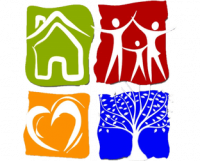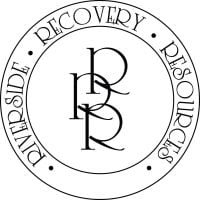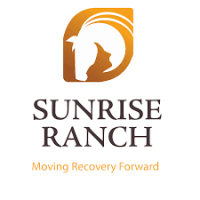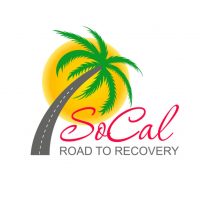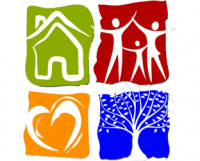MFI Recovery Center - Raincross Women's Program
Drug Rehab Center in Riverside, California
MFI Recovery Center - Raincross Women's Program in Riverside, California offers comprehensive drug treatment services, including detox and aftercare support, to help women recover from addiction and achieve lasting sobriety.
Multiple patients have reported MFI Recovery Center - Raincross Women's Program as permanently closed.
Research other rehabs in Riverside, California, or get help finding an open facility.
About MFI Recovery Center - Raincross Women's Program in California
MFI Recovery Center - Raincross Women's Program, located in Riverside, California, offers a specialized residential treatment for women battling substance addiction. This facility stands out by providing individualized care through The Matrix Model, focusing on creating a safe and nurturing environment for women to address their addiction and learn positive life management skills.
- Individualized Treatment Services: Tailored programs ensure that each woman's unique recovery needs are met.
- Focus on Women: A safe, women-only environment promotes healing and personal growth.
- The Matrix Model: Utilizes a comprehensive treatment approach to support recovery and prevent relapse.
Accredited by the Joint Commission on Accreditation of Healthcare Organizations (JCAHO), Raincross Women's Program emphasizes high-quality, comprehensive substance abuse and behavioral health services. Their commitment to transforming lives is evident through their dedication to breaking the cycle of addiction in a supportive and trusting setting.
The program specifically addresses alcoholism, opioid addiction, dual diagnosis, and other substance abuses, employing a variety of treatment methods and levels of care. This includes detox, inpatient, outpatient, residential, partial-hospitalization, and aftercare support, ensuring a holistic approach to recovery.
Genders
Ages
Modality
Additional
Accreditations

JCAHO
Conditions and Issues Treated
Opioid addiction starts when a person becomes addicted to legal or illegal opioids. The addiction can happen quickly, in just a matter of days. Opioid withdrawal can be extremely uncomfortable and lead the user to continue to use even if they want to quit. Stopping using an opioid requires medical observation. Sometimes inpatient treatment with a medically supervised detox is necessary for managing the withdrawal process while learning lasting tools for maintaining recovery. Medications may be used in some cases of opioid addiction.
Opioid addiction is one of California‘s most prominent forms of addiction. It’s treated by detoxifying the body so that the chemicals from the medications no longer impact them and by therapies to correct behavior and target the root of the problem.
Recovery is not simply about stopping drug use. Recovery is working with addiction while recovering mental health issues that are fueling the addiction in the first place.
Levels of Care Offered
This center offers a variety of custom treatment tailored to individual recovery. Currently available are Aftercare Support, Detox, Drug Rehab, Dual-Diagnosis, Inpatient, Outpatient, Residential, with additional therapies available as listed below.
Detox is the first step of rehab. It involves giving a person time to get the toxins out of their body. During detox, the patient gets ill and they will often start using again to get rid of these unpleasant feelings. That’s why it’s so important to have a Riverside medical professional at MFI Recovery Center - Raincross Women's Program present. A California medical professional will make sure patients don’t start using during detox. They will also provide medication to ease their symptoms and coach them through on a mental level.
Individuals who are suffering from severe addiction or have a high risk for dangerous health concerns are often recommended to receive inpatient treatment.
Choosing to enter an inpatient treatment program is beneficial for people who are suffering from severe addiction, or who have a high risk for dangerous health concerns.
Inpatient treatment is beneficial for:
- People who have a history of severe withdrawal.
- People who have attempted to overcome addiction on their own without success.
- People who have a history of relapse, or have recently relapsed.
- People at risk for drug overdose or withdrawal-related complications.
- People with medical conditions that are worsened by drug or alcohol use.
Outpatient treatment is considered the lower intensity level of addiction treatment. It’s ideal for early phase addiction or lower intensity addictions. It may include weekly sessions instead of daily. It may include weekly sessions instead of daily. Peer group support, 12-step programs, and individual counseling may still be involved but at a lesser frequency than an intensive outpatient program. It is a good choice for someone who doesn’t need to go through a medically supervised detox and who has a supportive home environment. It requires motivation and dedication to commit to the program without constant monitoring.
Residential treatment programs are those that offer housing and meals in addition to substance abuse treatment. Rehab facilities that offer residential treatment allow patients to focus solely on recovery, in an environment totally separate from their lives. Some rehab centers specialize in short-term residential treatment (a few days to a week or two), while others solely provide treatment on a long-term basis (several weeks to months). Some offer both, and tailor treatment to the patient’s individual requirements.
Aftercare support should take place after outpatient treatment has ended. There are a few different types of aftercare support that patients can seek. These include 12 Step, Self-help groups (AA, NA), Therapeutic communities, Long-term, structured sober living arrangements, and Halfway houses (residential treatment centers).
Therapies & Programs
Individual therapy involves one-on-one sessions between the patient and therapist. It provides patients with a safe environment to openly discuss personal and sensitive issues with the therapist. They find the therapist as someone they can trust. Individual therapy aims to identify the core issues that would have led the patient to substance abuse and address them effectively. The therapist can develop patient-specific customized solutions through individual therapy, which aids speedier recovery.
Family therapy is a group problem-solving that aims to improve communication and relationships between the addict, their family, and sometimes friends. The main goal of family therapy for drug addiction is to create an environment where communication can occur without judgment, hostility, or blame. The therapist is with the family as they learn to communicate differently, especially with the addict when s/he is using. The family can learn to reduce their enabling behavior or rally together and support each other during tough times.
An addict’s family can play a vital part in helping them to avoid relapse because they can spot the warning signs and help them get back on track before it becomes too much of a problem. Family therapy is one of the most effective ways to help addicts stay on the path to long-term sobriety. When a drug addict decides that they want to try and get sober, it takes the support of every person they love to succeed. It can be incredibly difficult for loved ones to watch an addict go through the pain and suffering of withdrawal, but by being there with them and supporting them, they can help to make sure that the addiction never returns.
Groups typically involve meetings with other recovering addicts who can relate to one another’s experiences. They might meet in person or online and typically focus on the process of staying sober rather than overcoming a specific addiction.
In these groups managed by MFI Recovery Center - Raincross Women's Program, addicts can build a sense of community and develop strong emotional connections with others who understand what they are going through. These beneficial relationships can help addicts overcome their cravings and prevent relapse at any point during the recovery process.
In general, trauma therapy is a clinical process that helps individuals deal with mental stress often caused by traumatic events. The therapist helps the person identify, understand, and work through the problem. This is done with the help of talking about it in group or one-on-one counseling sessions. Therapists use relaxation, role-playing, art, and music to help the person open up about what is bothering them.
There are many different types of trauma therapists, such as psychiatric nurses and counselors. Not everyone is a good candidate for this type of therapy; it is generally reserved for people who have recently experienced a traumatic event and struggle to get over it. It is often done for children, teenage victims of sexual assault, and war veterans.
There is hope for people who are addicted to drugs and alcohol. Cognitive Behavioral Therapy (CBT) is the solution. CBT focuses on the underlying thoughts and behaviors that caused the addiction problem in the first place and may cause a relapse. This type of psychotherapy addresses negative feelings common in substance abuse disorders. It helps to change them by restructuring thought patterns. It’s about removing negative thoughts and providing long-term benefits while promoting self-awareness, self-control, and healthy ways to respond to negative thoughts. These sessions can be done by themselves or as part of combination therapy.
Since addiction is a chronic physical and mental illness, addicts need to learn as many life skills as possible. Many drug treatment centers offer life skills activities as part of their addiction recovery programs. Examples include cooking classes, employment training, resume writing seminars, parenting classes, and computer training. Life skills activities help addicts find employment, take care of their families, and give back to the community.
Patient Experience
Fitness Therapy
Another unique benefit of addiction treatment services is fitness therapy. In addition to being therapeutic in its own right, an exercise regiment can support a recovering addict’s sobriety by:
- Encouraging healthy eating and exercise habits to really get the body back into good working order
- Providing a distraction from cravings and underlying psychological issues that could lead to relapse
- Gaining a sense of accomplishment from completing physical challenges that further personal development
- Improving cardiovascular health and circulatory system functioning and increased energy levels to help the body stay active and enhance mood
Payment Options Accepted
For specific insurance or payment methods please contact us.
Is your insurance accepted?
Ask an expert, call (888) 674-0062
MFI Recovery Center Associated Centers
Discover treatment facilities under the same provider.
- MFI Recovery Center - Riverside in Riverside, CA
- MFI Recovery Center - Banning in Banning, CA
- La Vista Recovery & Wellness Center Services in San Jacinto, CA
- MFI Recovery Center - Banning in Banning, CA
- MFI Recovery Center - Woodcrest in Riverside, CA
Learn More About MFI Recovery Center Centers
Additional Details
Specifics, location, and helpful extra information.
Riverside, California 92503 Phone Number(866) 751-8515 Meta DetailsUpdated April 15, 2024
Staff Verified
MFI Recovery Center - Raincross Women's Program Patient Reviews
There are no reviews yet. Be the first one to write one.
Riverside, California Addiction Information
More than 3 million of California's citizens are addicted to illegal drugs. Almost 800,000 people use hard drugs, almost 5 million use marijuana, and another 2.1 million abuse alcohol every year. Other substance abuse issues such as binge drinking and teen drug use are also common. Many illegal drugs such as cocaine, heroin, methamphetamine, and marijuana are smuggled into the state from Mexico.
In 2015, there were 5,287 reported cases of drug abuse in Riverside County. Of those cases, 2,992 were for marijuana, 1,023 were for methamphetamine, and 547 were for heroin. The most commonly abused drugs in Riverside are methamphetamine, heroin, and cocaine. Riverside, California, is a great place to get sober. There are many alcohol and drug rehabs. Getting sober here is worth considering if you're looking for a fresh start.
Treatment in Nearby Cities
- Santa Rosa, CA (429.9 mi.)
- El Centro, CA (132.9 mi.)
- Compton, CA (45.6 mi.)
- Turlock, CA (313.1 mi.)
- Rosemead, CA (38.7 mi.)
Centers near MFI Recovery Center - Raincross Women's Program
The facility name, logo and brand are the property and registered trademarks of MFI Recovery Center - Raincross Women's Program, and are being used for identification and informational purposes only. Use of these names, logos and brands shall not imply endorsement. RehabNow.org is not affiliated with or sponsored by MFI Recovery Center - Raincross Women's Program.
